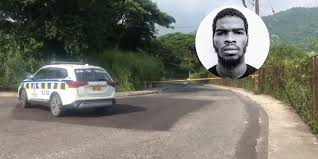On Monday, November 29, 2021, the island of Barbados celebrated its 55th year as an Independent country by executing two decisions that will not only usher significant change in the political, social, and cultural front on the island but also provide a marker for the other territories that comprise the Caribbean archipelago. On that day, Barbados buried its ceremonial shackles to the British monarchy by removing the Queen as its Head of State. In disrobing from the accouterments of its 1966 Independence from England, Barbados commemorated its new status as a parliamentary Republic.
The move from a constitutional monarchy to a parliamentary republic fulfilled a
promise made by then Governor General Sandra Mason that it was time for
Barbados “to fully leave its colonial
past behind and make a Barbadian person Head of State.”
Fittingly, the island’s first President is the said Sandra Mason, and Mia
Mottley remains as the Head of the Barbados Government. Mason in her first
presidential address to the nation stated, “Since Independence we have built an
international reputation anchored on our characteristics, our national values,
our stability, and our success, drawing on the lessons of those intervening
years, possessing a clear sense of who we are and what we are capable of
achieving.In the year 2021, we now turn our vessel’s bow towards the new
republic, and we do this so that we may seize the full substance of our
sovereignty.”
As the celebrations continued, Prime Minister, Mia Mottley then named
Ambassador Robyn Rihanna Fenty as the nation’s 11th National Hero. Rihanna has for years been Barbados’s most famous citizen
and in 2018, she was appointed an official ambassador for culture and youth.
She has never softened her Bajan accent, and her music, while tapping into pop,
R&B, and dance music, has remained connected to her Caribbean heritage. Mottley said
the superstar commanded, “the imagination of the world through the pursuit of
excellence with her creativity, her discipline, and above all else, her
extraordinary commitment to the land of her birth”.
The 33-year-old Rihanna was born in the parish of Saint Michael and
raised in the capital, Bridgetown. She vaulted to fame after the American
producer Evan Rogers recognized her talents. Her 2007 single Umbrella confirmed
her as one of the world’s biggest pop stars, and in 2008 the then prime
minister, David Thompson, announced an annual Rihanna Day. In addition
to making music, Rihanna has enjoyed a highly successful business career with
her Fenty group of companies. In August Forbes estimated she was worth $1.7bn
(£1.3bn), about $1.4 bn of which comes from the value of her cosmetics company,
Fenty Beauty, a partnership with the French fashion giant LVMH.
The Barbados announcements have set tongues wagging across the island
archipelago, particularly in Jamaica, which was generally thought of as among
the most socially and culturally progressive islands in the region. Many had
imagined that Jamaica would have been the first to shed the Queen’s robe long
before others, having fielded discussions over decades regarding taking such a
plunge. Of course, we have only succeeded in demonstrating that we are long on
talk but short of anything that requires taking action. Then there is the
matter of naming another National Hero, in a country that isn’t short on iconic
figures.
One wonders why the hesitancy on the part of Jamaica in taking this step? A National Hero doe not have to be a paragon of virtue or someone of unblemished character. What is important is the contribution that such individual(s) make to the development of society, the admiration they bring to the country’s nationals, their outstanding achievements, and the extent to which their efforts enriches the lives of those who identify with them.
It appears that none of our leaders in the last three or four decades sees such value in either, but would rather skirt the issue while our smaller neighbors demonstrate the ultimate confidence in the small gems that fall to their shores.
Congratulations Rihanna…very well done Barbados.
Thanks for taking the time to read our blog, please leave your thoughts in the comment section below, we appreciate your feedback. We also invite you to check Sunday Scoops our Jamaican music streaming and commentary program every Sunday from 2-4pm on yaawdmedia.com feel free to share with your friends.











